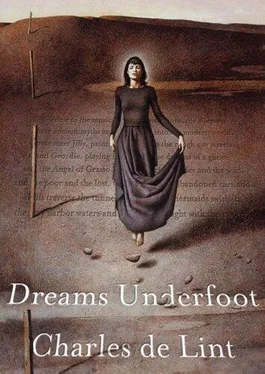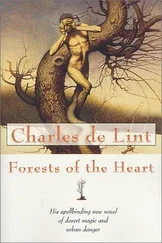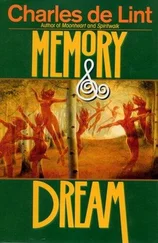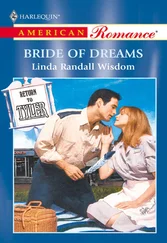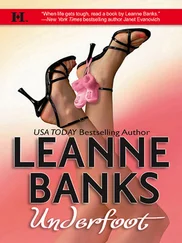I was never joking about Sophie. She really does have faerie blood. It’s something I can’t explain, something we’ve never really talked about, something I just know and she’s never denied. But she did promise me that she’d bless Annie’s baby, just the way fairy godmothers would do it in all those old stories.
“I gave her the gift of a happy life,” she told me later. “I never dreamed it wouldn’t include Annie.”
But that’s the way it works in fairy tales, too, isn’t it? Something always goes wrong, or there wouldn’t be a story. You have to be strong, you have to earn your happily ever after.
Annie was strong enough to go away from her baby when she felt like all she could do was just lash out, but she wasn’t strong enough to help herself. That was the awful gift her parents gave her.
I never finished that last painting in time for the show, but I found something to take its place.
Something that said more to me in just a few rough lines than anything I’ve ever done.
I was about to throw out my garbage when I saw those crude little drawings that Annie had been doodling on my kitchen table the night she died. They were like the work of a child.
I framed one of them and hung it in the show.
“I guess we’re five coyotes and one coyote ghost now,” was all Sophie said when she saw what I had done.
13
In the House of My Enemy, by Annie Mackle. Pencils. Yoors Street Studio, Newford, 1991.
The images are crudely rendered. In a house that is merely a square with a triangle on top, are three stick figures, one plain, two with small “skirt” triangles to represent their gender. The two larger figures are beating the smaller one with what might be crooked sticks, or might be belts.
The small figure is cringing away.
14
In the visitor’s book set out at the show, someone wrote: “I can never forgive those responsible for what’s been done to us. I don’t even want to try.”
“Neither do I,” Jilly said when she read it. “God help me, but neither do I.”
You can only predict things after they’ve happened.
—Eugene Ionesco
I inherited Tommy the same way I did the dogs. Found him wandering lost and alone, so I took him home. I’ve always taken in strays—maybe because a long time ago I used to hope that someone’d take me in. I grew out of that idea pretty fast.
Tommy’s kind of like a pet, I guess, except he can talk. He doesn’t make a whole lot of sense, but then I don’t find what most people have to say makes much sense. At least Tommy’s honest. What you see is what you get. No games, no hidden agendas. He’s only Tommy, a big guy who wouldn’t hurt you even if you took a stick to him. Likes to smile, likes to laugh—a regular guy. He’s just a few bricks short of a load, is all. Hell, sometimes I figure all he’s got is bricks sitting back in there behind his eyes.
I know what you’re thinking. A guy like him should be in an institution, and I suppose you’re right, except they pronounced him cured at the Zeb when they needed his bed for somebody whose family had money to pay for the space he was taking up and they’re not exactly falling over themselves to get him back.
We live right in the middle of that part of Newford that some people call the Tombs and some call Squatland. It’s the dead part of the city—a jungle of empty lots filled with trash and abandoned cars, gutted buildings and rubble. I’ve seen it described in the papers as a blight, a disgrace, a breeding ground for criminals and racial strife, though we’ve got every color you can think of living in here and we get along pretty well together, mostly because we just leave each other alone. And we’re not so much criminals as losers.
Sitting in their fancy apartments and houses, with running water and electricity and no worry about where the next meal’s coming from, the good citizens of Newford have got a lot of names and ways to describe this place and us, but those of us who actually live here just call it home. I think of it as one of those outlaw roosts like they used to have in the Old West—some little ramshackle town, way back in the badlands, where only the outlaws lived. Of course those guys like L’Amour and Short who wrote about places like that probably just made them up. I find that a lot of people have this thing about making crap romantic, the way they like to blur outlaws and heroes, the good with the bad.
I know that feeling all too well, but I broke the only pair of rosecolored glasses I had the chance to own a long time ago. Sometimes I pretend I’m here because I want to be, because it’s the only place I can be free, because I’m judged by who I am and what I can do, not by how screwed up my family is and how dirt poor looked pretty good from the position we were in.
I’m not saying this part of town’s pretty. I’m not even saying I like living here. We’re all just putting in time, trying to make do. Every time I hear about some kid ODing, somebody getting knifed, somebody taking that long step off a building or wrapping their belt around their neck, I figure that’s just one more of us who finally got out. It’s a war zone in here, and just like in Vietnam, they either carry you out in a box, or you leave under your own steam carrying a piece of the place with you—a kind of cold shadow that sits inside your soul and has you waking up in a cold sweat some nights, or feeling closed in and crazy in your new work place, home, social life, whatever, for no good reason except that it’s the Tombs calling to you, telling you that maybe you don’t deserve what you’ve got now, reminding you of all those people you left behind who didn’t get the break you did.
I don’t know why we bother. Let’s be honest. I don’t know why I bother. I just don’t know any better, I guess. Or maybe I’m just too damn stubborn to give up.
Angel—you know, the dogooder who runs that program out of her Grasso Street office to get kids like me off the streets? She tells me I’ve got a nihilistic attitude. Once she explained what that meant, all I could do was laugh.
“Look at where I’m coming from,” I told her. “What do you expect?”
“I can help you.”
I just shook my head. “You want a piece of me, that’s all, but I’ve got nothing left to give.”
That’s only partly true. See, I’ve got responsibilities, just like a regular citizen. I’ve got the dogs. And I’ve got Tommy. I was joking about calling him my pet. That’s just what the bikers who’re squatting down the street from us call him. I think of us all—me, the dogs and Tommy—as family. Or about as close to family as any of us are ever going to get. I can’t leave, because what would they do without me?
And who’d take the whole pack of us, which is the only way I’d go?
Tommy’s got this thing about magazines, though he can’t read a word. Me, I love to read. I’ve got thousands of books. I get them all from the dump bins in back of bookstores—you know, where they tear off the covers to get their money back for the ones they don’t sell and just throw the book away?
Never made any sense to me, but you won’t catch me complaining.
I’m not that particular about what I read. I just like the stories. Danielle Steel or Dostoyevsky, Somerset Maugham or King—doesn’t make much difference. Just so long as I can get away in the words.
But Tommy likes his magazines, and he likes them with his name on the cover—you know, the subscription sticker? There’s two words he can read: Thomas and Flood. I know his first name’s Tommy, because he knows that much and that’s what he told me. I made up the last name. The building we live in is on Flood Street.
Читать дальше
